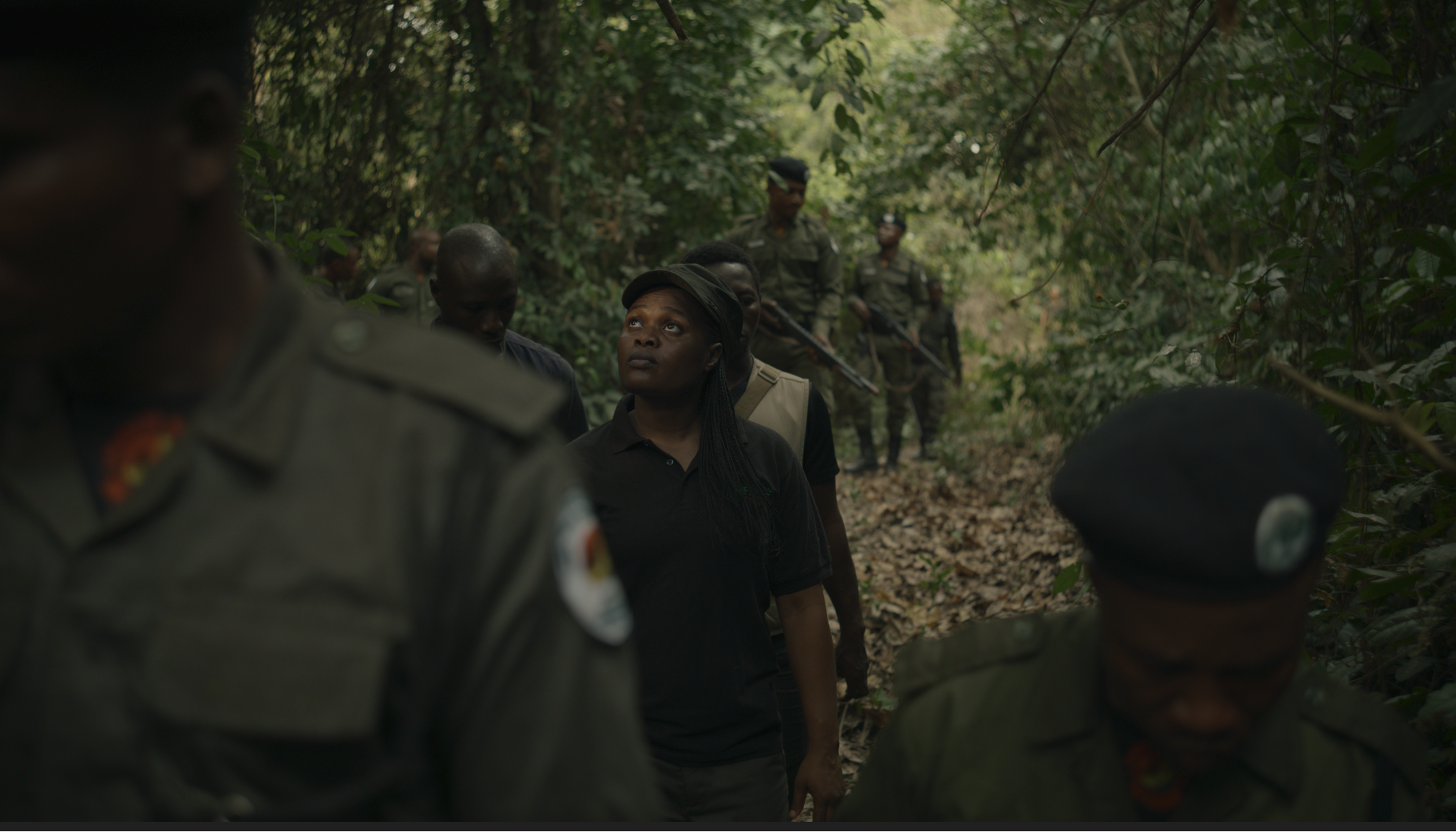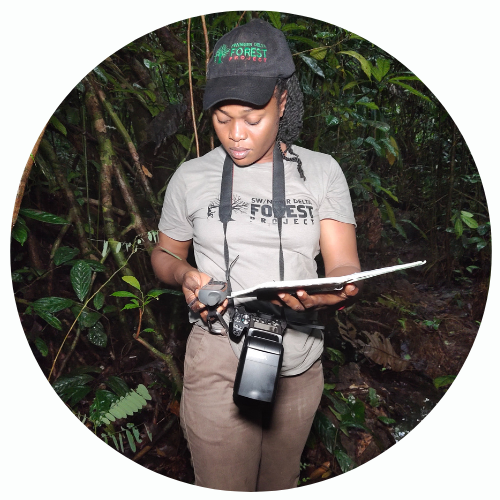
Interview with Rachel Ashegbofe, Project Director of SW/Niger Delta Forest Project
Published on 20 December 2023
1.Rachel, you are the Project Director of SW/Niger Delta Forest Project. Tell us about your organization.
The SW/Niger Delta Forest Project began as a conservation research project that later (out of necessity to increase its capacity to implement solutions to pressing issues) was registered as a Non-Governmental Organization in Nigeria as Foundation for Sustainability for Ecosystem, Wildlife and Climate.
Today, the organization is driving conservation actions from the grassroots ensuring conservation interventions for some of the most threatened species and ecosystems and in the most challenging socio-political environments. The programmes and conservation strategies are data driven and designed to protect critical wildlife species and fragile habitats across southern Nigeria particularly in the Southwest and the Niger River Delta regions of Nigeria, and to ensure a more sustainable future for people living adjacent to wild areas.
Since 2012, SW/Niger Delta Forest Project has been involved in species-based and landscape-level conservation efforts which is implemented through research, conservation education/communication, policy advocacy, and protected area management. For example, we were instrumental in the establishment of (and now co-manage) a community-based conservation area in the Niger Delta for the protection of the last remaining Niger Delta red colobus monkey population. Also, responsible for the establishment and management of the Ise Forest Conservation Area in southwestern Nigeria. In fact, we are the only conservation NGO in Nigeria that emerged locally currently protecting natural areas with several years of on-ground grassroots-level experience in wildlife conservation-related matters.
2.When and under what circumstances did you personally decide to commit yourself to Nature?
Interestingly, I got into conservation by sheer coincidence. I had my first degree in Public Administration and as a fresh graduate desperately looking for employment, aI stumbled on a vacancy ad for interns with the Nigerian Conservation Foundation sponsored by Statoil. Driven by my need for a job coupled with the sound of what seemed (albeit erroneously) at the time a connection with an oil company which was and probably is the most lucrative industry, I didn’t hesitate to apply.
I was invited for assessments/interviews along with other applicants from relevant fields such as Botany, Zoology, Sociology etc., I ordinarily shouldn’t have had a chance considering the line-up of better qualified candidates (especially in terms of degree-relevance to conservation) but in the end I was selected alongside 5 others for the internship position, the year was 2005. It was this internship programme that became a turning point in my life, it offered me the opportunity to see first-hand the desperate situation our wildlife and wildlands faced and perhaps I am inherently drawn to the idea of ‘saving the day’ because ever since, there’s been no turning back for me.
I had become exposed to the fundamental and very complex issues of human-nature interactions, the peculiar challenges facing Nigeria as a country, in fact, I was confronted with realities I felt were too close to ‘home’ and I couldn’t turn my back thereafter – I thought to myself, “someone has to do something about this and naively I thought I will just jump in and fix the problem – little did I know that I’d still be trying to fix things almost 20 years later. So, you ask, what made me commit myself to nature? It’s funny to say it but then ‘it is seeing the problem first-hand’. I’m inspired by the possibility that I could ‘fix the problem’ or at the very least contribute to the solutions.
3. In your opinion, what is the greatest victory of SW/Niger Delta Forest Project?
SW/Niger Delta Forest Project has had quite a few feats from being able to resolve a 20-year-old scientific ‘unknown’ into the evolutionary linkage of chimpanzees in western Nigeria (a feat sought for about 20 years prior by primatologists from Europe and the U.S. to literally bringing a species – the Niger Delta red colobus monkey- back from the brink of extinction. Or is it being able to not only work but create protected areas in the most threatened habitats and most volatile regions in Africa’s most populous country – also after some failed attempts by other big organizations who had made similar efforts before us. However, I would say our greatest victory is the investment in raising conservation leaders from the men and women who join our organization from local institutions and local communities. I have seen the transformation that has taken them within them, even being able to see an entire community in Nigeria’s Niger Delta become conservation champions is by far our greatest achievement.
4.Who is the person who is currently your source of inspiration and why?
Currently, I am most inspired by the men and women who make up my team. Last year, one of our team members died in the line of duty, I had imagined the worst – I thought, other team members will become too afraid to carry on the work but I was wrong. I saw clearly the resolute, the passion and zeal in these people who prior to joining SW/Niger Delta Forest Project had no previous experience in conservation, there was no motivational talk neither were there any special incentive for working with the organization but they stood their ground – many times in the face of hard opposition from those who were determined t unleash carnage on the remnant forests and wildlife populations. They faced the ridicule of their peers, they endured false accusations meant to sabotage our progress, they ignored tempting amounts of money to compromise their integrity and stood firm for the cause for which we have embarked on – to save our species now or never.
5. If you were an animal, you would be? Tell us why?
I would be an eagle. If you look at the characteristics of an eagle you will find the following facts about this magnificent animal:
-The eagle is a powerful bird of prey and full of vitality. This animal is so full of life that it knows well how to re-energize itself to live up to its full potential until its dying moments.
-The eagle survives mainly on live prey and hunts silently and swiftly. Which to me implies that they are intentional about how they live their lives, prioritizing health, peace and speed
-The eagle has probably the best vision in the animal kingdom, able to sight a prey from as high as 10,000 feet
-This animal is tenacious, high-aiming, and fearless.
-And probably the most important of the characteristics of this animal is that it nurtures and mentors its young ones
